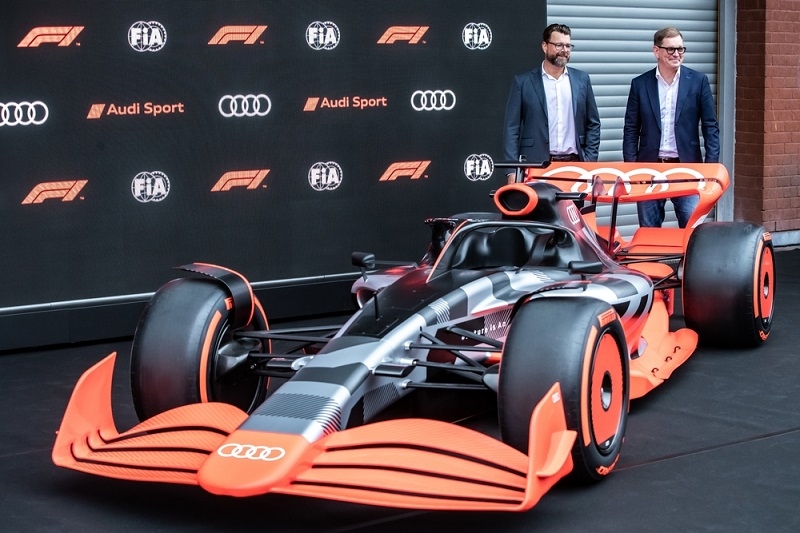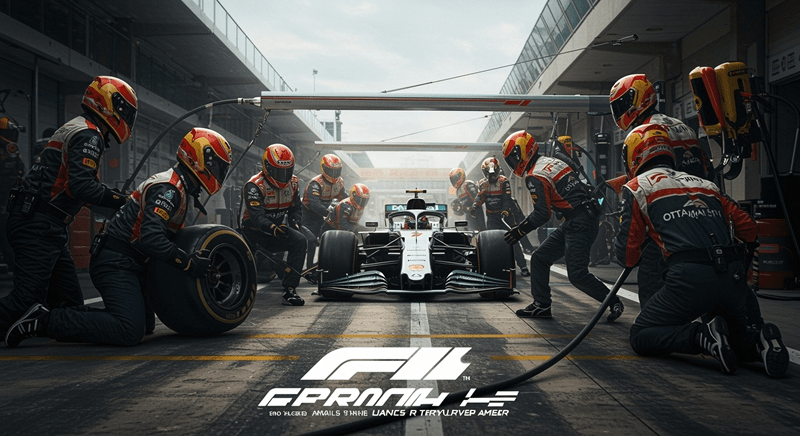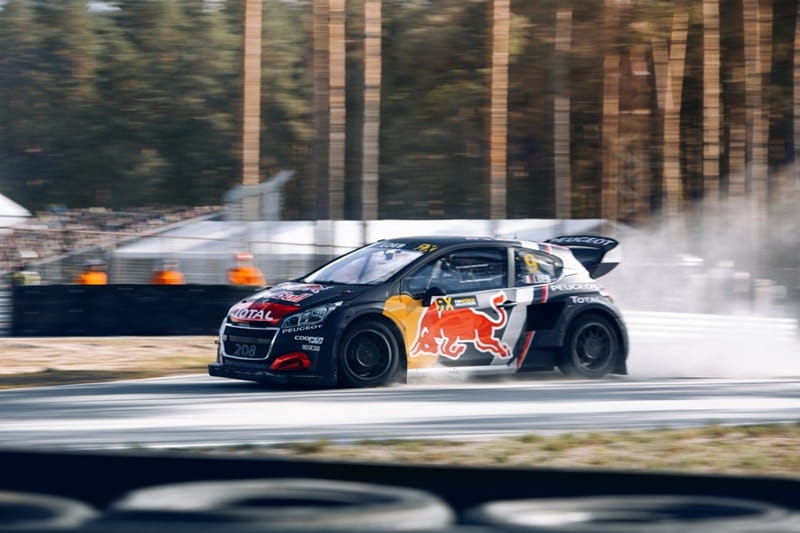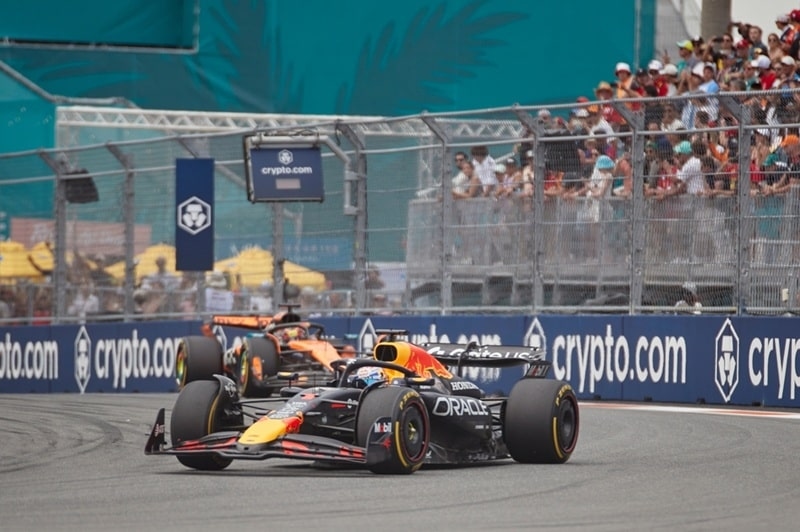Meet the Best 10 Youngest Formula 1 Race Leaders of All Time

In the high-octane world of Formula 1, becoming a race leader is a milestone that few ever achieve let alone at a young age. Leading a race in the premier motorsport class requires not just raw speed but extraordinary composure, racecraft, and the ability to outperform seasoned competitors. The youngest F1 race leaders in history didn’t merely make it onto the grid; they dominated it, sometimes within just a few races of their debut.
Max Verstappen – 18 Years, 228 Days
Max Verstappen redefined what was possible in Formula 1 when he led and ultimately won the Spanish Grand Prix at 18 years old. Not only did he become the youngest-ever F1 race leader, but he also ingeniously turned out to be the youngest-ever Formula 1 race winner. However, Most extraordinary about Verstappen's achievement was that it came in his debut race for Red Bull Racing after being raised from Toro Rosso.
Learn More: Red Bull Oracle Racing Extends Sergio Perez’s Deal to 2026
Verstappen's aggressive driving style, stunningly quick reflexes, and astounding race intelligence shocked the racing world. He showed little of the rookie nerves as he studiously maintained his cool even while chased by world champion Kimi Räikkönen. Today, Max is one of the most dominant Formula 1 race car drivers on the grid, having already bagged a few world championships, and is still in his mid-twenties. His early rise as one of the youngest race car drivers Formula 1 fans have ever seen continues to inspire a new generation of racers.
Sebastian Vettel – 21 Years, 74 Days
Sebastian Vettel's tale as an early race leader began with a dream weekend at the 2008 Italian Grand Prix. Driving for Toro Rosso, a midfield team at the time, he scored pole position but eventually won the race, leading from start to finish in wet conditions. Thus, at that moment, he became one of the youngest race leaders in F1 history and a first-time winner in spectacular style.
And that weekend heralded the arrival of the future legend. A four-time world champion with Red Bull, he was renowned for his technical understanding and freakish work ethic in pursuit of perfection. Among all renowned Formula 1 racers, the arc of his career-from rookie sensation to dominating champion-is perhaps the most iconic of all. Leading races at so young an age has made him one among the brightest talents in history of the sport.
Fernando Alonso – 21 Years, 236 Days
Fernando Alonso’s breakthrough as a race leader came during the 2003 Malaysian Grand Prix, when he was racing for Renault. Already known for his fearless approach and strategic mind, Alonso managed to take the lead in difficult conditions, showcasing the traits that would make him one of the most enduring and beloved Formula 1 race car drivers of his era.
Alonso’s success as a young leader foreshadowed a stellar career that included two world championships. Even into his 40s, he remains a competitive force, demonstrating the staying power that few race car drivers Formula 1 has ever produced can match. His initial rise as a young race leader set the stage for a career defined by brilliance, determination, and a relentless drive to win.
Charles Leclerc – 21 Years, 320 Days
The 2019 Grand Prix in Bahrain was quite a watershed for Charles Leclerc. Entering his second Ferrari race, Leclerc had an uninterrupted weekend encircled by race control until a late-engine failure robbed him of victory. Nevertheless, he had already inscribed his name among the youngest F1 race leaders ever.
Leclerc displayed wicked calmness in situations and good pace right from the beginning. The driver's career is well documented but Leclerc embodies modernism as a poster boy representing Formula 1 new breed of race car drivers, combining youthful charm, raw talent, and professionalism. His prowess became highly treasured by Ferrari for its long-winded vision of success.
Lewis Hamilton – 22 Years, 63 Days
Lewis Hamilton had a very stellar introduction to Formula 1. He became a race leader at his third Grand Prix, the 2007 Bahrain GP. From the get-go, Hamilton exhibited remarkable maturity and racecraft. Leading races at such an early stage was an obvious sign he was destined for greatness.
Hamilton's journey from being the youngest race leader to the seven-time world champion, has made him one of the most famous Formula 1 race car drivers in the sport's history. His legacy goes beyond the tracks, transforming him into a global personality and a role model. For fans and aspiring Formula 1 race car drivers, Hamilton's early rise serves as a blueprint showing that talent and opportunity can converge into greatness.

Check This Out: Experience the Excitement of the Japanese Grand Prix
Kimi Räikkönen – 22 Years, 260 Days
"The Iceman," the nickname for Kimi Räikkönen, was calm and cool. He drew attention to himself at the 2002 French Grand Prix by leading that Grand Prix. With McLaren, Räikkönen's raw speed and his dutiful attitude constituted a threat even with older, wiser competitors.
His youthful race leadership qualified him as a rather unique contender in the history of F1 race leading. Räikkönen became a world champion in the year 2007, and went on to become one of the most cherished characters in the sport. His nonchalant attitude and persona made it pretty easy for him to carve a position hardly trying among racing drivers adored by Formula 1 fans.
Jenson Button – 22 Years, 284 Days
Jenson Button’s first race leadership moment came in the early 2000s during a career that had seen him rise rapidly. By the time he led his first Grand Prix, Button had already proven himself to be one of the most promising young Formula 1 race car drivers.
His smooth driving style and ability to manage tires under various race conditions earned him consistent results and a world championship in 2009 with Brawn GP. Button's early days as one of the youngest F1 race leaders highlight how experience and strategic driving can be just as crucial as raw pace — a quality that defined his long and successful career.
Robert Kubica - 23 Years, 93 Days
In 2007, Robert Kubica from Poland became a Grand Prix leader and soon gained a reputation as one of the best Formula 1 race car drivers of the day. His breakthrough performance at the Japanese Grand Prix gave him notoriety. Taking control of the race in atrocious conditions, Kubica's daring moves and technical feedback put him on anyone's radar in the paddock.
A 2011 rally accident that severely injured his arm affected his career terribly. His return to F1 in 2019 is considered by many to be one of the greatest inspiring stories involving any racing driver in the history of Formula 1, almost a decade after an official event. His early success as a young leader testifies to his raw talent.

Nico Rosberg – 23 Years, 112 Days
Nico Rosberg led his first race in 2008, and it became apparent that he would not live in the shadow of his father, 1982 world champion Keke Rosberg. Given his analytical approach and disciplined preparation, Rosberg matured into a fierce competitor who eventually dethroned Lewis Hamilton for the 2016 world championship.
Rosberg's rise to the elite F1 drivers down to some of the shrewdest racecraft demonstrated how intelligent racecraft and mental toughness can even conquer natural talent. His story differs from his contemporaries — he retired soon at the peak of his glory and fulfilled his dream.
Carlos Sainz Jr. – 24 Years, 276 Days
Carlos Sainz Jr., the son of rally king Carlos Sainz, has always been regarded as a man who will deliver. But it was during a rain-lashed Brazilian Grand Prix of 2019 that he displayed the kind of racing skills worth every bit of leading for the first time — a sign of arrival, at least in the eyes of the elite group of race car drivers Formula 1 counts among its best.
Leading the race reinforced Sainz's potential for race wins and podium finishes. As a Ferrari driver nowadays, Sainz is well-positioned to become one of the future champions in the making. From rising star to team leader, that is the path many aspiring Formula 1 race car drivers hope to follow.
Also Read: F1 2025 Driver Line-Up: See Who's Racing for Which Team?
Conclusion
The stories of these young F1 race leaders underscore a powerful truth: age is no barrier to brilliance. Whether it’s Verstappen's raw aggression, Vettel's strategic genius, or Leclerc and Alonso's technical mastery, each driver showed that confidence and talent can eclipse years of experience. They didn’t just lead races — they shifted the expectations of what young Formula 1 race car drivers could accomplish. In a sport traditionally associated with maturity and caution, these ten racers proved that audacity and youthful energy could change the game.
This content was created by AI




